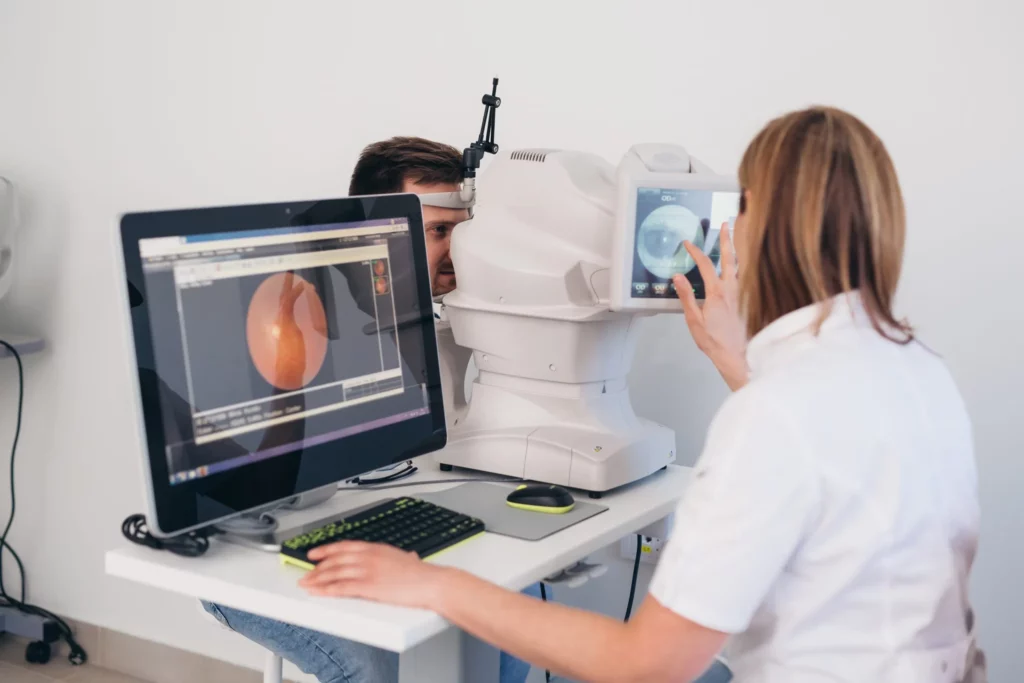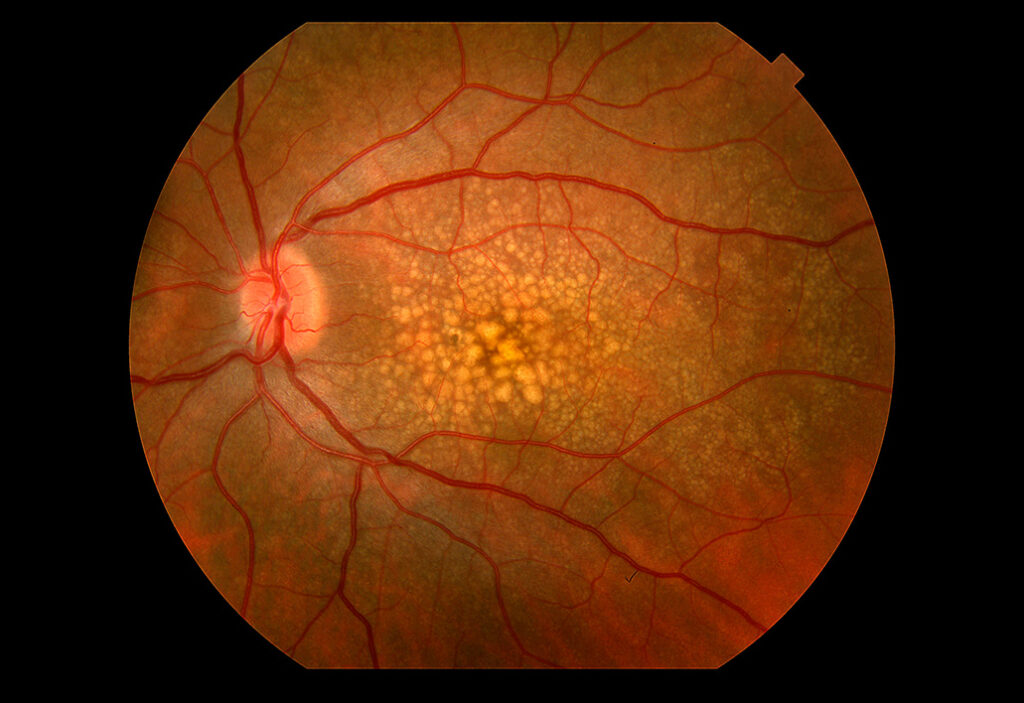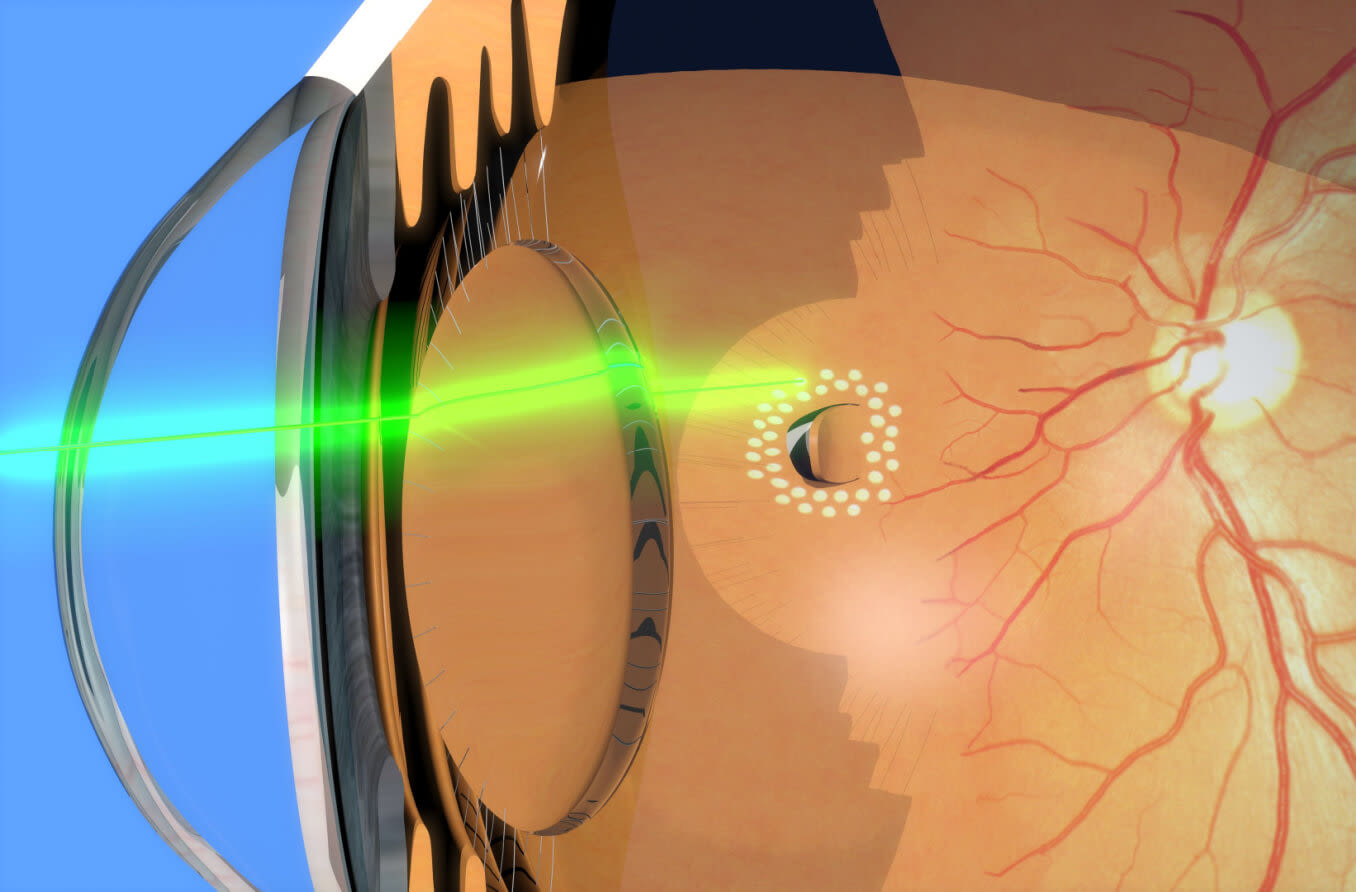Understanding the importance of retinal health
Retinal health is crucial for maintaining good vision and overall eye function. The retina is the thin layer of tissue located at the back of the eye, and it plays a significant role in capturing light and converting it into electrical signals, which are then sent to the brain for interpretation. Without a healthy retina, our ability to see would be severely compromised.
Furthermore, the retina is also responsible for detecting colours and fine details, making it essential for day-to-day activities such as reading, driving, and recognising faces. Therefore, understanding how to preserve and improve retinal health will benefit not just our vision but our quality of life.
The role of the retina in vision
The retina comprises millions of cells known as photoreceptors, which are divided into two main types: rods and cones. Rods enable us to see in low light conditions, while cones help us perceive colour and detail in brighter light. This combination allows us to experience the world in vivid colour and clarity.
In recent years, advances in medical technology have revolutionised the way we approach retinal health. New retinal treatments options have emerged, offering patients hope where previously there was little. These innovations range from minimally invasive surgical techniques to comprehensive medication regimens.
Any damage or disease affecting the retina can lead to a range of vision problems, from mild blurriness to complete blindness. Therefore, it is essential to recognise the importance of maintaining the health of the retina through regular eye examinations, a balanced diet, and protecting our eyes from harmful rays.

Common retinal conditions and their symptoms
Several retinal conditions can impact eye health. Some of the most common include age-related macular degeneration (AMD), diabetic retinopathy, and retinal detachment. Each of these conditions presents its own unique set of symptoms:
- Age-related macular degeneration (AMD): Symptoms often start with a gradual loss of central vision, making it difficult to read or recognise faces.
- Diabetic retinopathy: Individuals may experience blurred vision, dark spots, or difficulty seeing at night, often linked to fluctuating blood sugar levels.
- Retinal detachment: This serious condition can cause flashes of light, a sudden increase in floaters, or a shadow over part of the visual field.
Being aware of these symptoms is critical for timely intervention, as early diagnosis and treatment can significantly improve outcomes.
Read about retinal diseases at: Recognising Retinal Diseases
Exploring advanced retinal treatments
The evolution of retinal treatments
The evolution of retinal treatments can be traced back several decades. In the past, many conditions were either untreatable or limited to invasive procedures with uncertain outcomes. Today, a plethora of new options exist, allowing for safer and more effective treatment processes.
One significant advancement has been the development of targeted therapies that address the underlying causes of retinal diseases. These treatments focus on specific molecular pathways, allowing for a more personalised approach and generally leading to better patient outcomes.
Modern techniques in retinal surgery
Modern retinal surgery has seen the introduction of innovative techniques such as vitrectomy, which involves removing the vitreous gel from the eye to access the retina. This procedure can correct a variety of conditions, including retinal detachments and macular holes.
Another notable advancement is the use of laser therapy, which can treat retinal tears or lesions with minimal recovery time. With these modern techniques, patients often experience reduced pain and quicker recovery, allowing them to return to their daily lives more swiftly. Find more about lesions on https://www.cancer.gov/publications/dictionaries/cancer-terms/def/lesion#:~:text=(LEE%2Dzhun),sores%2C%20cysts%2C%20and%20tumors.
Non-surgical solutions for retinal health
Not all retinal treatments require surgery; numerous non-surgical solutions can also significantly improve retinal health. These options are often preferred due to their lower risk and ease of administration.
Medications for retinal diseases
Medications play a vital role in managing retinal diseases. For instance, anti-VEGF (vascular endothelial growth factor) injections are commonly used to treat conditions such as AMD and diabetic retinopathy. By effectively reducing swelling and inhibiting abnormal blood vessel growth, these medications have led to remarkable improvements in vision for many patients.
Additionally, steroid injections may be prescribed to reduce inflammation in certain retinal conditions, while oral medications can help manage underlying health problems, such as diabetes, which can contribute to retinal diseases.
Lifestyle changes to support retinal health
In addition to medical treatments, lifestyle modifications can also significantly optimise retinal health. Here are some practical steps individuals can take:
- Maintain a healthy diet rich in omega-3 fatty acids, leafy greens, and colourful fruits and vegetables.
- Quit smoking, as it greatly increases the risk of developing retinal diseases.
- Exercise regularly to enhance overall circulation and blood flow to the eyes.
- Wear sunglasses to protect eyes from harmful UV rays.
Implementing these changes not only supports retinal health but promotes overall well-being.
The future of retinal treatments
As we look to the future, the landscape of retinal treatments continues to evolve. With ongoing research and technological advancements, the potential for new therapies appears promising.
Innovations in retinal treatment technology
Innovations such as artificial intelligence (AI) and machine learning are changing the way we diagnose and treat retinal diseases. AI algorithms can now analyse retinal images with remarkable accuracy, helping ophthalmologists detect conditions earlier than ever before. Click here to read more about diseases.
Moreover, the development of smart contact lenses and other wearable tech may soon allow for real-time monitoring of retinal health, empowering patients and doctors with timely data for better health management.
The potential of gene therapy for retinal diseases
Gene therapy represents one of the most exciting frontiers in treating retinal diseases. Researchers are exploring ways to replace or repair faulty genes responsible for hereditary retinal conditions. Early trials have shown promising results, leading to improvements in vision for some patients.
As gene therapy technology matures, it holds the potential to transform how we approach retinal diseases, providing hope for individuals facing previously untreatable conditions.
Making the decision: Choosing the right retinal treatment
With various treatment options available, it can be challenging to choose the right one. Patients must consider their individual circumstances and medical history when making these decisions.

Factors to consider when choosing a treatment
When deciding on a retinal treatment, several factors should be taken into account:
- The specific retinal condition and its severity.
- Potential side effects and risks associated with each treatment.
- The lifestyle impact of treatment and recovery time.
- Access to necessary follow-up appointments and support.
By weighing these factors carefully, patients can make informed choices that align with their values and health goals.
The role of the ophthalmologist in treatment decisions
Your ophthalmologist plays a critical role in guiding you through the treatment decision process. They can provide essential insights into the various options available and help tailor a treatment plan to your unique needs.
A strong patient-doctor relationship fosters open communication, enabling you to voice your concerns and preferences. This collaborative approach is vital for ensuring the best possible outcomes for your retinal health.

